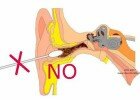Unfortunately, even though it is extremely important for the body, Vitamin B12 is often overlooked.
Yet, it is crucial for the metabolism body cells, and its lack leads to long-term diseases and neurological conditions. Hence, it is of high importance to learn the early symptoms of vitamin B12 deficiency in order to successfully prevent various health issues.
We will also reveal its importance for your overall health and which foods are the richest sources of this vitamin. These are some of the most important health benefits of this vitamin:
- Helps Digestion
This vitamin aids in the production of digestive enzymes, thus helping the breakdown of foods in the stomach and supporting a healthy metabolism. It helps foster healthy gut bacteria and removes the harmful bacteria in the digestive tract.
This, in turn, prevents inflammatory bowel disease, Candida, and other digestive disorders.
- Prevents Nerve Damage
Nerves have a natural covering called myelin sheath whose primary purpose is to protect them from toxins and free radical damage.
Without this protective covering, nerves can be easily damaged and killed which can result in nerve-related disorders. This is because dead nerves are interrupting the transmission of signals to and from the brain.
- Prevents Heart Disease and Stroke
Heart diseases are one of the leading causes of death in the U.S. and a recent study has shown that the raised levels of homocysteine increase the risk of heart disease even more than cholesterol. The non-protein α-amino acid leads to inflammation in the case of reduced levels of vitamin B12. Therefore, this vitamin lowers the homocysteine levels, and thus raises the risk of heart disease and stroke.
- Supports Energy
Vitamin B12 triggers the production of energy by supporting the health of cells. The reduced levels of this vitamin starve and weaken the cells. The metabolism needs vitamin B12 to turn carbs into usable glucose – which is a vital participant in the process of energy production. Hence, in the case of B12 deficiency, you might often suffer from fatigue.
- Bone health
B12 is especially beneficial in the case of osteoporosis and other bone issues as patients have higher levels of homocysteine than healthy individuals. Vitamin b12 lowers the levels of homocysteine, which is perfect in these cases.
- Helps Produce Erythrocytes and Prevent Anemia
The vitamin B12 helps the production of erythrocytes, so it protects against megaloblastic anemia whose symptoms include weakness and chronic fatigue.
Vitamin B12 Deficiency symptoms:
- Muscle Weakness
If you feel that your muscles are weak, and you find it difficult to carry even a bag, they probably lack the needed amount of oxygen from erythrocytes, as improper oxygenation to muscle cells and vitamin B12 deficiency leads to uncharacteristic muscle weakness and sluggishness.
- Eye Problems
Prolonged vitamin B12 deficiency might cause damage and changes in your vision. The deficiency of this vitamin leads to an optic neuropathy as it causes a damage of the optic nerve and light sensitivity, reduced central vision, blurred or doubled vision, and shadows or tracers.
- Dizziness
The frequent bouts of vertigo and lightheadedness, or dizziness, indicate vitamin B12 deficiency. These episodes often occur when walking upstairs or downstairs, or when standing up too fast or suddenly from a chair.
- Unexplained Fatigue
Constant fatigue is another early sign of the lack of this vitamin, especially if it occurs without an evident cause. This is a result of the reduced production of erythrocytes in your body that leads to insufficient amounts of oxygen transported throughout the body.
- Pale Skin
If your face has turned pale, it might be a result of the lack of vitamin B12 deficiency caused by the lack of erythrocytes. In turn, the body produces more bilirubin which turns the rosy cheeks pale.
- Forgetfulness
The chronic deficiency of this vitamin often leads to uncharacteristic forgetfulness, which does not necessarily indicate early dementia, or Alzheimer’s.
- Pins and Needles
Vitamin B12 deficiency leads to paraesthesia, or otherwise known as pins and needles. You can experience prickling, tingling, or numbing sensation throughout the body, especially in the hands and feet. This is due to the nerve damage which is a result of the lack of vitamin B12.
The following list involves some of the richest natural sources of this vitamin:
- Beef and chicken liver — 81 milligrams in 3 ounces
- Salmon — 19.5 milligrams in 108 grams (1 filet)
- Herring —18.7 milligrams in 143 grams (1 filet)
- Mackerel — 15.3 milligrams in 3 ounces
- Sardines — 13.3 milligrams in 1 cup
- Tuna — 9.3 milligrams in 3 ounces
- Trout — 9.1 milligrams in 1 filet
- Organic yogurt — 1.3 mg in 1 container of plain Greek yogurt
- Turkey — 1.1 milligrams in 3 ounces
- Raw milk — 1 milligram in 1 cup
- Beef tenderloin — 0.9 milligrams in 3 ounces
- Lamb — 0.8 milligrams in 3 ounces
Plus, other non-vegan sources of vitamin B12 are cheese, cereals, plant-based milk (coconut milk, soymilk, almond milk) and nutritional yeasts.
The importance of this vitamin, therefore, is its numerous medicinal properties which can help you prevent various health issues. Hence, it is of high importance to learn to detect its deficiency and treat it on time in order to protect yourself from additional health complications.




